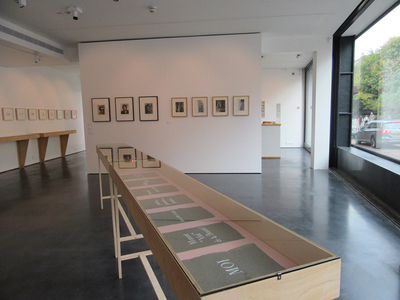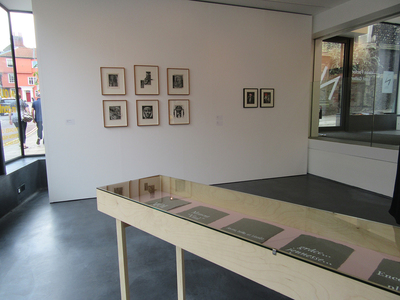KIVLAND, Sharon (2017). In Quotes : Collage and Assemblage in Contemporary Art, curated by Ann-Marie James, with Caroline Fisher. [Show/Exhibition] [Show/Exhibition]
Documents
21368:475224
21368:475225
21368:475228
Abstract
IN QUOTES presents works by a range of contemporary artists working with collage and assemblage across generations. The exhibition includes new and existing pieces using postcards, books, altered photographs, and illustrations.
Tim Davies / Jorge De La Garza / Cristina Garrido / Susan Hiller / Rowena Hughes / Ann-Marie James / Sharon Kivland / Linder / Alex March / Cornelia Parker / John Stezaker / Holly Stevenson
Social media has made ventriloquists of us all – through our online profiles and timelines we speak in quotations, found images, videos and music, each of us creating a unique assemblage that expresses an individual sense of self. Speaking through found media has become a shared language, a common tongue. Collage, as a medium, has never been more relevant.
Thinking about the ubiquity of this new form of assemblage offers us a lens through which we might consider, or reconsider, artworks made in the medium of collage. Clement Greenberg’s seminal text, Collage, attributed the invention of the technique to Georges Braque and Pablo Picasso – in its relatively short history how has the medium changed, and how has our reading of it changed? In a world saturated with images, how do contemporary artists arrest our insatiable consumption of images? Greenberg observed that the technique’s “flatness of the surface permeates the illusion, and the illusion itself reasserts the flatness. The effect is to fuse the illusion with the picture plane without derogation of either – in principle.”
Sharon Kivland turns the straplines of a number of advertisements from French magazines of the 1950s into drawings, as though a particularly vain and narcissist woman speaks (as of course she does). She is ‘en pleine forme’ of her beauty.The paper is a replica of the paper used by J. M. W. Turner for his watercolours made on his travels through France, Italy, Germany, and Belgium, one he used for night scenes.
More Information
Statistics
Downloads
Downloads per month over past year
Share
Actions (login required)
 |
View Item |


 Tools
Tools Tools
Tools![[thumbnail of MOI 01.jpg]](https://shura.shu.ac.uk/21368/1.hassmallThumbnailVersion/MOI%2001.jpg)

![[thumbnail of MOI 02.jpg]](https://shura.shu.ac.uk/21368/2.hassmallThumbnailVersion/MOI%2002.jpg)

